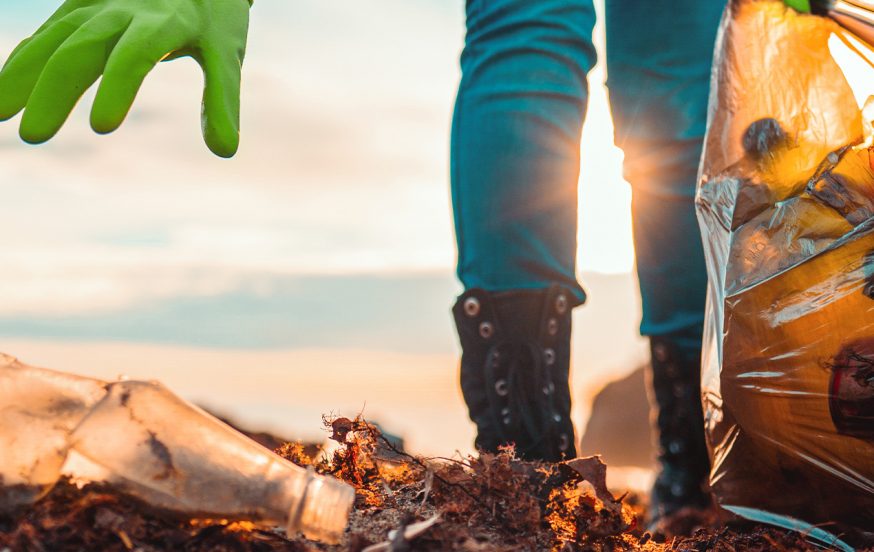It’s hard to ignore the rising tide of conversations, news stories and media coverage around the topic of climate change in Australia right now. From the devastation caused by bushfires, earthquakes and floods, we can no longer ignore the issues at hand. At an individual and community level, there are endless steps we can take to implement sustainable practices into our lives. No matter how small the action is, the most important thing we can do – is start now.
What is sustainability?
The United Nations World Commission on Environment and Development states: “Sustainable development is development that meets the needs of the present without compromising the ability of future generations to meet their own needs.” The UN Sustainable Development Goals (SDGs) are the blueprint for achieving a better and more sustainable future for all. They address the global challenges we face, including poverty, inequality, climate change, environmental degradation, peace, and justice.
Monthly sustainability challenges
Our team is committed to creating a more sustainable community, and each month we’re challenging ourselves to make sustainable choices in our everyday lives. Here’s what we’ve been up to!
February: No takeaway coffee cups – we bring our reusable cups everywhere!
Did you know that over 1 billion takeaway coffee cups end up in landfill every year in Australia? Although they look like paper cups, the plastic lining on the inside prevents them from being recycled. Some of our team members now refuse to buy a coffee if they leave theirs at home. That’s commitment!
March: Say goodbye to plastic water bottles for good
As part of WorldStrides’ effort to reduce waste on programs and in the office, we have partnered with Fill it Forward, a company that provides fun and innovative ways to inspire all to show their love and respect for the planet. Every time we fill our bottles team members are encouraged to utilise Fill it Forward’s scannable sticker to contribute to a philanthropic effort that aligns with our journey towards a sustainable future. WorldStrides participants will soon have Fill it Forward integrated into their programs, where they will learn the power of reducing and #reusing!
April: Take 3 for the sea
A fantastic initiative to solve the plastic pollution issue in our oceans. Whenever we leave the beach, waterway or anywhere, we promise to take at least three pieces of rubbish with us and put it where it belongs… in the bin! 10 million pieces of rubbish is removed annually across 129 countries thanks to Take 3 for the sea.
And we’re just getting started! Check out our social pages to see what issue we’ll be tackling each month and follow along with us.
Sustainability classroom activities for students
Teaching sustainability in the classroom helps students to understand the importance and purpose of implementing environmentally friendly practices into their daily lives. Here are some initiatives and classroom activities that will influence students to become the Captain Planets of their generation:
- Build a school/classroom vegetable garden – this guide delves into the many benefits of creating a school garden and how to get started!
- Organise a clothes swap event at school – get students thinking about the negative effects of fast fashion and the positive impact buying second-hand clothing has on the environment.
- Interactive Nature walks (Year 10 case study) – students investigated native flora on the college grounds, which evolved into the creation and implementation of an ICT interactive nature walk. Students conducted research and built a webpage, and created a QR code for their plant so the user could scan it and be taken to the specific webpage.
- Renewable energy activity (Years 5-6 case study) – students studied climate change and its causes and considered why it is important to think about our carbon footprint. They explored how we use energy and examined alternatives to fossil-fuel-generated electricity, including wind turbine blade design and solar-powered cars. The final task was to design and build a solar oven to cook their own S’Mores.
- Reduce single use plastics – encourage your students to reflect on how much plastic they use and how they can reduce their plastic consumption.
- Rubbish bin sorting activity (and more great activities for primary students) – a great activity for younger students to help them understand exactly what goes into which bin.
- Recipe Resourcefulness worksheet – students will consider how much water is used in food production, whip up something delicious in the kitchen using the ingredients they have at home and see how they can be resourceful all throughout the house.
Sustainability challenges and events for students
- Collect 3 pieces of rubbish at the end of each break time and pop it in the bin
- Reuse rubbish items for crafts
- Make your own wrapping paper
- Plant a tree
- Join a clean-up event
- Get students to evaluate the waste they are producing and design challenges to reduce their wastage. For example, if the class is throwing out a lot of soft plastics, get students to use alternative options like reusable containers and start a Redcycle recycling bin at your school.
Follow us on Instagram, Facebook or LinkedIn for updates on our monthly challenges and our company-wide commitment to sustainability!



